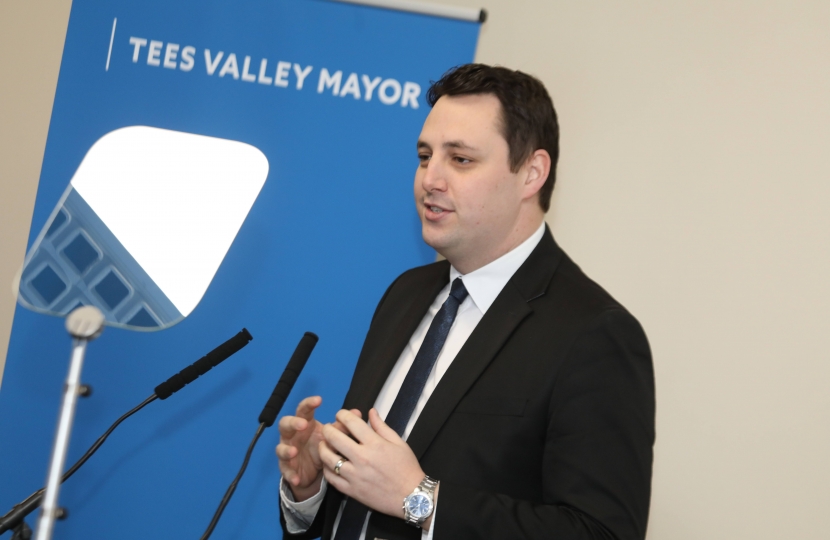
Tees Valley Mayor Ben Houchen today (January 30) met senior offshore wind chiefs to drive forward plans for a heliport at Teesside International Airport to support a £3.2billion wind project.
Investors SSE and Norwegian energy giant Equinor are set to base themselves at the airport to operate and service the world’s largest wind project, Dogger Bank. Under the plans unveiled earlier this month, the Operations and Maintenance base will see engineers and support staff mobilised directly from the Heliport at Teesside International during both the construction and operational phases of the project.
The windfarm project is currently under construction in the North Sea more than 100 miles off the coast of Redcar.
When fully developed, the Dogger Bank Wind Farm will provide the UK with 4.8GW of clean, renewable power for decades. This equates to around 10% of the UK’s total electricity requirements, and will be transported via underground, high-voltage cables to substations near Lackenby, Redcar.
Mayor Ben Houchen was also invited to deliver a keynote speech at a major offshore wind conference in Blyth, organised by NOF Energy, Equinor and the Offshore Renewable Energy (ORE) Catapult. The Mayor set out the case for investment at the soon to be publicly-owned airport to supply chain representatives and industry chiefs.
The event at the Port of Blyth, Northumberland was focused on next generation innovation in operations and maintenance for the offshore wind sector.
Last week the Tees Valley Mayor’s plan to bring the region’s airport back into public ownership was approved as part of a ten-year Investment Plan to transform the region. The purchase from Peel Holdings is set to be finalised by March 2019.
Mayor Houchen said: “I have always said that our airport in public ownership won’t just be about flights to Costa del Sol. We also need to attract commercial investors to get our airport back into profit.
“Today’s event allowed me to set out the case for investment at Teesside International to an even wider audience - this time with the guarantee that we are now in control of our airport’s future.
“Now it has been agreed to take the airport back into the hands of the people, for the people, we can take advantage of the huge opportunities that the 819 acre airport site offers.
“This purchase isn’t just about flights, it throws up the chance to strengthen our business ties and attract commercial investors to ensure the airport will thrive for years to come.
“The Tees Valley is a UK leader in businesses operating in the offshore oil, gas and wind, decommissioning and subsea sectors, with hundreds more in the supply chain.
“The planned Helipad to service the huge Dogger Bank Wind Farm will see engineers and support staff fly from the airport, helping to create even more high-quality, long-term jobs in the sector, with a huge knock-on effect for our companies.
“There are countless more opportunities out there, and I’m determined to do all I can to ensure investors world-over are aware that Teesside International Airport is open for business.”
Joanne Leng MBE, Deputy Chief Executive, of NOF Energy, and Deputy Chair of Energi Coast, North East England’s offshore wind cluster, said: “Today’s event highlighted the wide-ranging capabilities and innovation within the UK supply chain, and the ways that businesses can capitalise on new developments, such as those offered by regional airports like Teesside International.
“The Mayor’s presentation was very enlightening for our partners and delegates, and added to a hugely successful event for the offshore wind sector, and the Dogger Bank development in particular.”
Halfdan Brustad, Vice President of Equinor, said: “The development of the Dogger Bank Wind Farms is expected to offer a range of opportunities for companies in the North East cluster.
“The Mayor’s plans for the airport provide a positive step in the development of this cluster, which will in turn provide opportunities for significant numbers of jobs and economic development in the area.”




